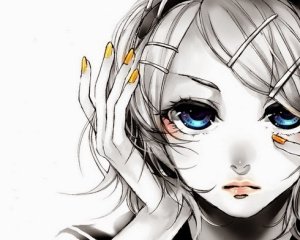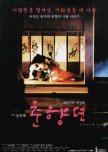This review may contain spoilers
WARNING: MAY CONTAIN SPOILERS
I am aware that Chunhyang is a classic korean folktale, and I am aware that many people love and cherish this story. Well, here's why I'm not one of those people (and why that's okay):
Rather than a touching love story, Chun Hyang uses a classical star-crossed lovers trope to reinforce stereotypical gender roles and shame female sexuality. Mong Ryong plays the stoic, heroic man who is revered for his looks, intelligence, and status as a nobleman. Chun Hyang is the "ideal" confucian wife: shy and sexually innocent yet passionate in bed, intelligent and well-spoken, and ABOVE ALL completely devoted to her husband. The story constantly reinforces these roles: rather than display passion and mutual love, the wedding night scene is used to display Chun Hyang's "shyness" (which honestly comes off as reluctance or non consent) Mong Ryong's sexual prowess as he literally chases after Chun Hyang and takes her clothes off. Chun Hyang is continually shamed for her sexuality, and even when they are having sex Chun Hyang must play hard-to-get. Very few times does Chun Hyang initiate intimacy, and when she does it is to reinforce her role as the doting, dedicated wife. These gender roles continue when Mong Ryong is sent to Seoul: Chun Hyang is overcome with emotion and throws a temper tantrum while Mong Ryong remains the stoic scholar. Chun Hyang becomes a shell of a person and cannot continue to live a functional life without her husband—despite the fact that she was an accomplished woman (in writing, painting, sewing, and music) before she met Mong Ryong. In the end, Mong Ryong is excused after abandoning his wife for three years while Chun Hyang is revered for remaining chaste.
In the end, this story isn't a romantic tale of two lovers—it is a story of neglect, of dedication that threatens the mental and physical safety of Chun Hyang, and of sexual repression and public shaming that only reinforces the virgin/whore dichotomy.
Was this review helpful to you?





